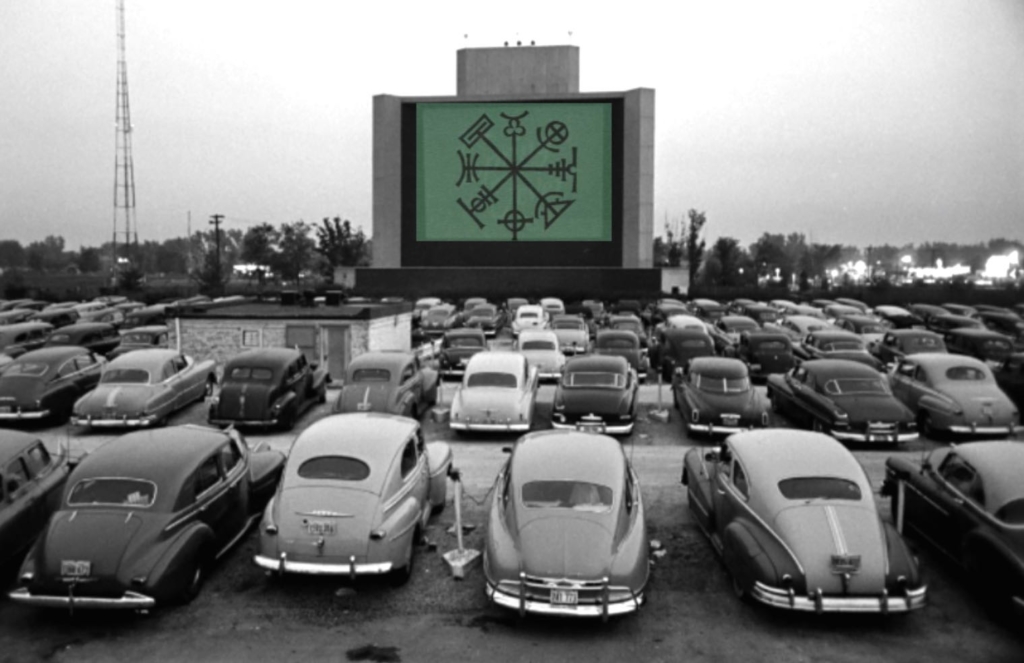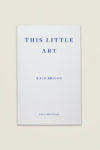“It would seem that we are condemned for some time yet always to speak excessively about reality.”
As an American, seeing another Super Bowl come and go has a certain significance. This is not because I am a football fan, far from it, but because of the attention paid, during the most watched television event of the year, to the commercial advertisements surrounding the broadcast. These come complete with full commentary and critique, thumbs up or down, disapproval or joy. It is a phenomenon unlike anything else. We are all privy to the lists of money doled out to secure these ads, exorbitant sums for thirty-second time-slots. For some of today’s most popular athletes, whom you could see playing a game in between those commercials, revenues from advertisements for sponsors make up a full third of their yearly income, which is sizeable already, to say the least.
Roland Barthes wrote the above-quoted in 1957, as the closing remark to his Mythologies. Since that time, the influence of advertising on our lives has only become more pervasive and more insidious. The 1950s were in many ways the beginning (or the great thickening) of mass popular culture, both in France and the United States. Radio and newspapers had adumbrated the trend, television in the postwar boom pronounced it. For five decades, television (alongside print media) remained the most powerful tool in mass advertising, until recently eclipsed by the range and structural fungibility of the internet. The world is more saturated than ever in this trend Barthes was discussing: in mythological language.
The power of our modern mythologies, as Barthes saw it, lies in the type of speech the language produces. Barthes describes this speech primarily as absence, an “emptying out” of meaning, a ceaseless ongoing draining of signification. In other words, the continual saying of that which “goes without saying.” It is indicative of the “common sense” of modern man, that which is assumed — both in the sense of an obvious meaning, and an eternal genesis. It is speech created in order to essentialize.
Making the specific seem natural is the job of advertisers. Here we have the “natural” choice of toilet paper, the “naturally” most energetic drink, the event of the season, the only dress you could possibly choose, the one item that is essential to your well-being, or even just your being. Advertising’s reach has grown exponentially over the past couple generations. Not only do we watch more ad-addled television than ever before, but time spent on the internet, whose entire capitalistic enterprise is run on advertising, has usurped almost every other conscious activity (especially for the young). Exposure to more ads means more reading and seeing and hearing the empty rhetoric of essentialist perlocution: paltered clichés, tropes, maxims, lies, and nonsense. One result, in Barthes’ view, is a cheapening of the greater language, filling it with empty space, void of substance, absent of signification or, conversely, riddled with multiple, contradictory and/or tautological significations, that do nothing more than confuse, equivocate, and essentialize to the point of meaninglessness. What is a Super Bowl, Barthes might ask, if not simply the superlative itself?
The mythological language of advertising finds an unfortunate correlative in our current political arena. Our politicians, lobbyists, political pundits and their press, use mythological speech daily, without reserve, in perpetuity. This system, built up over time, recognizes as its greatest advantage the ability to confuse its public, to give it the choice between nothing and nothing. The “neither/nor” mentality, Barthes argues, is not really a choice at all, but merely a solicitation for endorsement. Thus an American voter is faced with “choosing” the lesser of two evils, between two ill-defined parties, neither of which represents his views, indeed which might be said to represent (each in itself) contradictory views, constantly shifting views, or an absence of concrete political thought altogether. For a conservative, if a liberal says the word “taxes” it goes without saying that he wants to implement socialist big-government policies; for the liberal, it goes without saying that when a conservative says “tax-cut” what he really wants is a corporate-run state. This is not debate, it’s persuasion. The actual words are meaningless, it’s the type of language that affects us.
We can choose, of course, to ignore these two massive equivocators, and in fact many do. Some become so disgusted by television commercials that they stop watching. Plenty of people are apolitical, in the sense that they no longer follow the news or weekly/monthly developments of the political world. But no one can remain unaffected by its language, which, whether we are listening intently or not, makes its way into our lives via others, via entertainment or art with which we do engage that hold some remnants of the language (however small or hidden), via background noise, and, most prominently, via the internet. An indicative example: a quarter of all Twitter posts are from ad-linking bots, and an estimated 15 million Facebook users are actually simple programs designed to circulate ads. Spam. AdWords. They are inescapable.
They are also peripheral, of course. They stream down the edges of our webpages like ants coming after our food; they fly around us during breaks in our TV shows, buzzing in our ears as we swat them away. More insidious are the ways in which we ourselves have come to use this type of speech. The condensation of letter-writing, first to email and then to text, has increased the usage of phrases meant for quick consumption: bromides, truisms, and clichés. These are easily understood or applied because their signification has, in the words of Barthes, been “frozen” by myth. Anyone who has attempted to relay more than the most basic idea via text message knows how difficult it is. Sarcasm, jokes of all kinds, any shade of tone between dull and overexcited, all are lost in the hollowness of the form. How many types of LOL are there, and how can these possibly be conveyed? For many people, texts are now their primary form of social conversation. In a world of clutter, convenience is key. Twitter feeds, Facebook posts: we have come to use these as, essentially, self-advertisement.
This speech has also, to a great extent, taken over our creative pursuits. To take one example, the poem or song: two art forms that are similar, and indeed used to be much the same. Someone listening to a pop song — “when I’m not with you I lose my mind” — quickly picks up and digests the meaning (she’s full of yearning for a boy). On the other hand, a contemporary poem about the same emotional breakdown of an intensely attached person bereft of his or her object of desire might not be so quickly or simply digested or understood. “Give me a sign,” the song demands, and the one she gets/wants is appropriately blunt and immediate.
The song is by far the more popular and disseminated of the two in today’s society, to the detriment of the other. It is also basic nonsense: the song doesn’t mean what it says and doesn’t say what it means. “The Revolution Will Not Be Televised” was a song written outside the repetitive rhetorical mode of pop. It was meant to be taken specifically. Today, the majority of people who hear the phrase have no idea of its provenance or original meaning, and furthermore have no curiosity to find out. Its meaning has changed. Indeed, as mythological speech its meaning is meaningless; it simply signifies something different, whatever that something may be. It could be skateboarding. It could be orange juice. It is the endlessly ironic nature of this type of speech that the phrase itself has, inevitably, become televised.
One interesting tack to combat this trend has been taken by the poet Kay Ryan, who has spoken of her idea of the “rehabilitation of the cliché”—trying to take back a language lost. Ryan’s poems that deal with this idea are exquisitely crafted. The concept, once reclaimed, is not the same as before. It’s been emptied out in its mythological form, and Ryan uses this earlier transmogrification to her comic advantage.
“Home to Roost”
The chickens
are circling and
blotting out the
day. The sun is
bright, but the
chickens are in
the way. Yes,
the sky is dark
with chickens,
dense with them.
They turn and
then they turn
again. These
are the chickens
you let loose
one at a time
and small —
various breeds.
Now they have
come home
to roost — all
the same kind
at the same speed.
It is interesting that the joke form — the form this poem and many others by Ryan take — is oftentimes wholly dependent on “exformation”. This is explicitly discarded information, or, in other words, that which “goes without saying”. It’s a different type of assumption, the equal and opposite of the aforementioned usage, which could be said to be ex-misinformation, ex-uninformation. Nevertheless, in the process of restoring a mythologized phrase to its original meaning, Ryan cannot help but draw upon her own and the audience’s assumed knowledge (in this case, of the mythological language itself) in order to debunk it. Barthes laments this very problem regarding his role as a “mythologist,” who must use the very same type of language he’s trying to demystify. He is “condemned to metalanguage,” a similar category to the mythological. “We constantly drift between the object and its demystification, powerless to render its wholeness.” In “Home to Roost,” Ryan is navigating that same drift.
When I was young, I used to read the “Amelia Bedelia” books by Peggy Parish. The comedy in them is pure misunderstanding of rhetoric, usually involving Amelia taking an utterance literally that was meant by its speaker to be taken figuratively. Paul de Man, writing a couple decades after Barthes, further explored the effects of mythological speech through the lens of deconstruction. In Amelia’s case, it proceeds thusly: from illocution (I want you to turn off the lights) through locution (“Amelia, please put out the lights before you go to bed”) to perlocution (she wants me to unscrew the light bulbs and put them outside). It’s funny. It’s in the form of a joke. De Man, in “Semiology and Rhetoric,” qualifies this: “As long as we are talking about bowling shoes, the consequences are relatively trivial.” Or light bulbs, for example. On the other hand, when a language that induces and promotes this type of misunderstanding is being widely used to talk about the art forms by which we define ourselves and our culture, when it is used in the speech forms by which we communicate our emotions and ideas, our morality and principles, or in the politics by which we live and govern, the potential consequences of misunderstanding are a bit more dire.
One of Ryan’s aesthetic predecessors, Milan Kundera, also addresses the loss of accurate signification. His debut novel, The Joke, as well as his short story “Nobody Will Laugh,” are based in a world deaf to exformation, a world that has elevated the mythological phrase to an absolute. In Kundera’s case, this world was the totalitarian politic of Eastern Europe under the Soviets (or, in the short story, the totalitarian politics of the ideological University Campus), where a common phrase uttered in jest is frightfully and finally misunderstood, and becomes grounds for arrest or severe chastisement. The stories demonstrate what we mean when we say someone “can’t take a joke.” (It should also be said that those not yet under the influence of mythological speech, those who, in Barthes’ words, still “speak the object” — young children, for example — also can’t take the joke, but in that case there is surely less danger of consequence). In The Trial, Kafka (an aesthetic predecessor, in turn, of Kundera) describes K’s confusion trying to decipher an ambiguous speech. He is arrested for an undisclosed, an assumed, offense. K worries that he will be seen as taking the situation too seriously when in reality it is a prank, and expresses embarrassment that his friends might berate him for being “unable to take a joke.”
Presently, this very type of misunderstanding occurs within our own judicial system, a result of the increased use of mythological language in social media and in text messaging. The context of these utterances can be nearly impossible for the outsider to fully understand (particularly without investigation). This is true primarily, as we have seen, in terms of shades of tone (jokes, sarcasm) and figurative speech (allusion, metaphor). Additionally, our online and text speech is so deeply dependent on essentialized rhetoric that to treat it as anything but runs the risk of deliberate inaccuracy. Yet our law enforcement increasingly takes this speech in earnest, submitting it as evidence in criminal trials. Indeed, one particularly onerous growing pain of the new popular mythological language we use is the widening gap between the necessary earnestness of our legal speech (the language of “justice”) and the equivocal reality of our everyday social and cultural speech. Our intelligence agencies as well have taken to mining this non-contextual data with the intent to incriminate, a misjudgment which could have unfortunate and, ultimately, frightening consequences.
Kundera, in his explorations of the idea of human “forgetting” discusses how much of it is accomplished simply through manipulation of language. Barthes, too, describes the mythologized forms as being “deprived of memory.” Later, he puts it this way:
Bourgeois ideology continuously transforms the products of history into essential types. Just as the cuttlefish squirts its ink in order to protect itself, it cannot rest until it has obscured the ceaseless making of the world, fixated this world into an object which can be for ever possessed, cataloged its riches, embalmed it, and injected into reality some purifying essence which will stop its transformation, its flight towards other forms of existence. And these riches, thus fixated and frozen, will at last become computable: bourgeois morality will essentially be a weighing operation, the essences will be placed in scales of which bourgeois man will remain the motionless beam. For the very end of myths is to immobilize the world.
This ossification and its correspondence to judgment (“justice”, “choice”) enacted by mythological speech, is recognizable to anyone studying our popular culture, our politics, or our economic system. Barthes pins much of the responsibility for this on the bourgeoisie, the all-conquering Middle Class. Just as, in his view, the middle class incorporates everything and anything into its worldview, not allowing for deviation, acting as if it is the perfection of society and will exist for all time, so too does it use myth as just this: an idea, a thing, eternal and infallible. The middle class has risen to its position of prominence in just the same way as mythological language has: through consumerism and capitalism. The capitalization, or monetization, of society is as fiercely active today as it was in the 1950s, both in its epitome, pop culture, and increasingly in other spheres, in education, in art, in politics — each of which is ever more under the purview of moneyed concerns, increasingly sold to us utilizing the mythologized lexicon.
Simpleminded, essentialized branding and sale is evident to the grocery-store shopper infuriated by his or her inability to determine where or from what a product was made. It is the ridiculous noise any conscientious voter is forced to sift through in order to choose a candidate to represent him or her in office (or, indeed, those affected by the laws passed by those representatives and upheld by the judiciary). It is the fascinating, to some, exasperating to others spotlighted content of Super Bowl advertisements. Indeed, what do “Now with 50% more fruit!” or “You’re not fully clean unless you’re zestfully clean!” or “War on Drugs” or the name “Obama” mean? They have been stripped of meaning, or rather, they mean something (multiple things, ever-changing things) externally and temporarily assumed rather than what their words (specific, equivocal, contradictory, nonsense) contain.
The authority of myth, as Barthes views it, is both a result of its pervasive use, and simply its projection of itself as an authority. Because of its magical quality — that is, because it is first in a hierarchy of signification, lacking greater contextual reference, empty of precise meaning — its only recourse is to invent authority and then simply assign that authority to itself.
Myth does not deny things, on the contrary, its function is to talk about them; simply, it purifies them, it makes them innocent, it gives them a natural and eternal justification, it gives them a clarity which is not that of an explanation but that of a statement of fact.
Couple this with the authority of money, and you have the greater part of modern American public life. (And increasingly our private lives, as our personal relationships more and more utilize social networking forums as their basis. Private becomes public via the internet, and there is an equal trade wherein public speech is used to describe the private, e.g. to “like” or “friend” someone becomes, in its form and meaning, a public declaration.)
Increasingly, we are forced into ignorance by the type of speech we use. Myth steals language. Barthes writes that it “does not suppress the meaning, it only impoverishes it, it puts it at a distance, it holds it at one’s disposal.” It is an appropriation, a distortion, a processed artificiality. If language is a tool meant to communicate via signification a concise and true meaning, then myth is a failure of language. It is “a ceaseless flowing out, a hemorrhage, or perhaps an evaporation, in short a perceptible absence.” It is rapidly becoming the dominant language of our daily lives. The nothing with which we are forced to contend.
Jeff Lennon is a displaced Californian living in Brooklyn. You can visit him online at The Coastal Literary.
This post may contain affiliate links.








